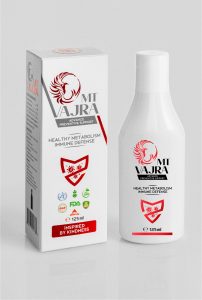
Being pregnant and giving birth are exciting times for many mothers. Unfortunately, many women in the US suffer health complications during and after pregnancy. In fact, the rate of maternal mortality (death) in the US increased by approximately 27% from 2000 to 2014. Approximately 700 women die each year from pregnancy or childbirth complications. In 2014, more than 50 thousand women in the US had severe pregnancy complications. Finally, among black women the risk of pregnancy-related death is 3 to 4 times higher than it is for white women.
To help reduce the risk of complications during and after pregnancy, it’s important for women to take steps to manage their health. These may include:
- Receiving care from a healthcare team before, during, and after your pregnancy.
- Sharing your current and past medical history with your team.
- Learning as much as you can about what you need to do to stay healthy and have a healthy baby.
The checklist below may help guide the conversation between you and your healthcare providers during your pregnancy-related visits. Download the checklist here.

MY PREGNANCY HEALTH CHECKLIST
SCHEDULE A PRE-PREGNANCY CHECKUP.
- This can help your healthcare provider identify and manage health issues that may affect you or your baby before, during and after your pregnancy.
KEEP ALL PRENATAL VISITS.
- During these visits, your healthcare provider will check your overall health and the health and development of your baby.
- Keep track of any problems or symptoms you are having and talk about them with your healthcare provider during your prenatal visits.
- Work with your healthcare provider to develop your birth plan. This could include the type of pain management you want, who you want with you during delivery, and the possibility of having a C-section.
MAKE HEALTHY LIFESTYLE CHOICES.
- Don’t smoke, drink alcohol, or use recreational drugs during your pregnancy. These can cause health problems for you and your baby.
TELL YOUR HEALTHCARE PROVIDER ABOUT ALL OF THE MEDICATIONS AND SUPPLEMENTS YOU TAKE.
- Some prescription and over-the-counter medicines and supplements have the potential to harm your baby. That is why it’s important to speak with your healthcare provider before you take any medication or supplements.
ASK YOUR HEALTHCARE PROVIDER IF YOU NEED TO TAKE A PRENATAL VITAMIN AND FOLIC ACID.
- Prenatal vitamins contain important vitamins and minerals that you may need before and during your pregnancy.
- Folic acid taken before and during pregnancy can help prevent some serious birth defects in babies.
STAY UP-TO-DATE WITH YOUR VACCINATIONS.
- Your healthcare provider may recommend specific vaccinations before, during, and after your pregnancy.
LEARN YOUR FAMILY HISTORY.
- Certain medical conditions can be passed from one generation of a family to another, so it’s important to learn all you can about your family history and share it with your healthcare provider.
BE PHYSICALLY ACTIVE.
- Being physically active during pregnancy has a number of benefits including weight control, improved sleep, and increased energy. Talk with your healthcare provider about the kinds of activities that are best for you.
LEARN WHAT FOODS TO EAT AND WHICH TO AVOID.
- Eating healthy, well-balanced meals can help give you the nutrients you need and help your baby grow and develop. Healthy foods include lean meats, fruits and vegetables, whole-grain breads, and low-fat dairy products.
- Avoid foods that could cause problems for you or your baby. Some of these include refrigerated smoked seafood; unpasteurized milk, juices, and soft cheese; raw sprouts; and undercooked food.
- Your healthcare provider can help guide your food choices.
AVOID TOXIC SUBSTANCES OR ENVIRONMENTAL CONTAMINANTS.
- You can be exposed to toxic substances that can be harmful to you and your baby before and during pregnancy. These substances include bug sprays, cat or rodent feces, or certain metals or chemicals.
- Talk with your healthcare provider about steps you can take to reduce your exposure to these and other toxins.
GET HELP IF YOU ARE EXPOSED TO VIOLENCE.
- Violence is harmful at any time. If you are exposed to violence from anyone, talk with your healthcare provider about where to find help.
TAKE CARE OF YOUR MENTAL HEALTH.
- Everyone feels worried, sad, down in the dumps, or stressed at some point in their life. But if you’re having any of those feelings and you find it difficult to manage your daily life, talk with your healthcare provider. There are treatment options that may help.
LEARN THE SIGNS OF PREECLAMPSIA (HIGH BLOOD PRESSURE) DURING PREGNANCY.
- Preeclampsia is a potentially serious type of high blood pressure that can happen during pregnancy. Signs of preeclampsia include swelling of the face or hands, headache, blurry vision, and pain in the upper right side of the abdomen. If you notice any of these signs, contact your healthcare provider right away.
AVOID INFECTIONS.
- During pregnancy, infections such as sexually transmitted infections (STIs), the flu, and urinary tract infections (UTIs) can be especially dangerous for you and your baby.
- Food-borne infections can also lead to serious complications for you and your baby. You should avoid certain foods such as raw seafood; unpasteurized juices, cider, and milk; and undercooked meat and poultry.
- Talk with your healthcare provider about other steps you can take to avoid infections and what foods you should avoid.
FOLLOW YOUR POSTNATAL CARE SCHEDULE.
- Keeping up with your office visits after your baby is born can help your healthcare provider monitor your overall health and keep track of your baby’s development. Follow the schedule your healthcare provider recommends.
 Global Pharm Distribution, LLC
Global Pharm Distribution, LLC




